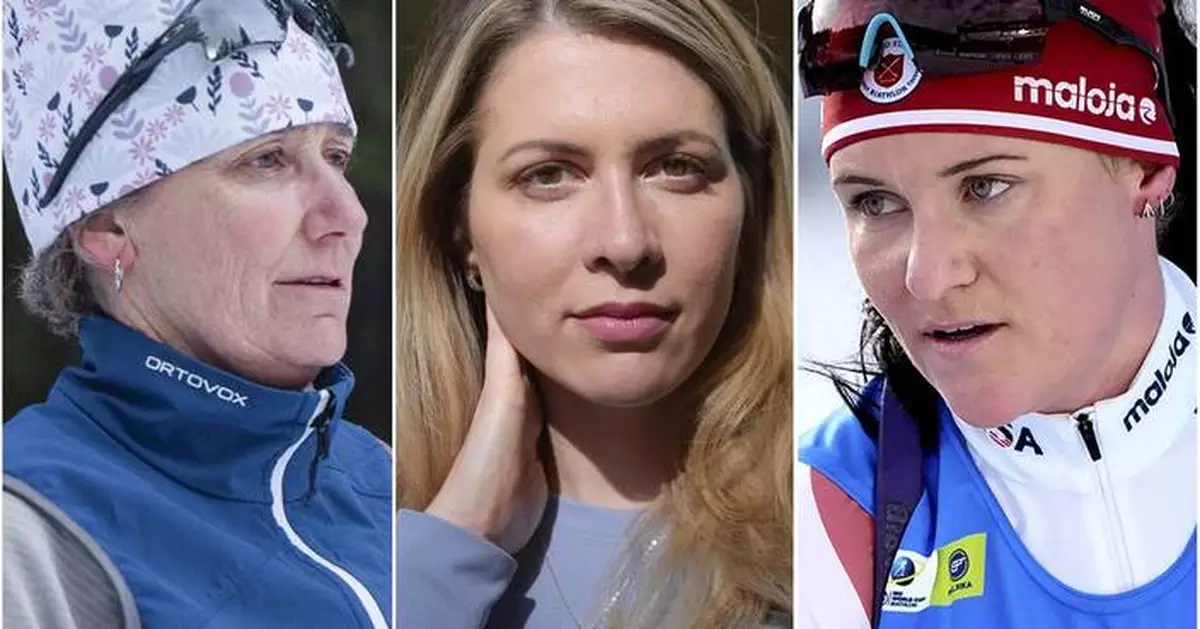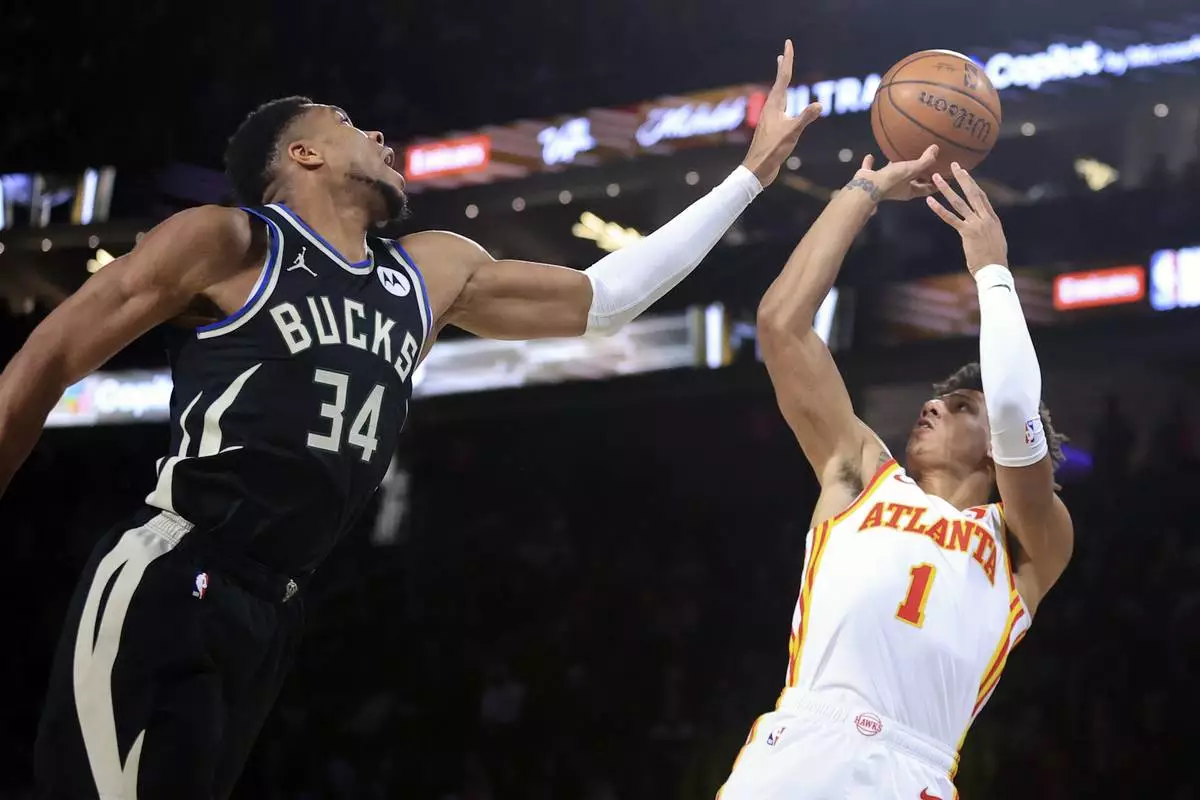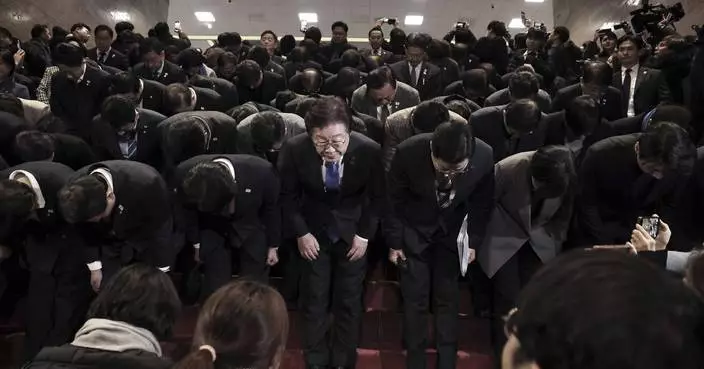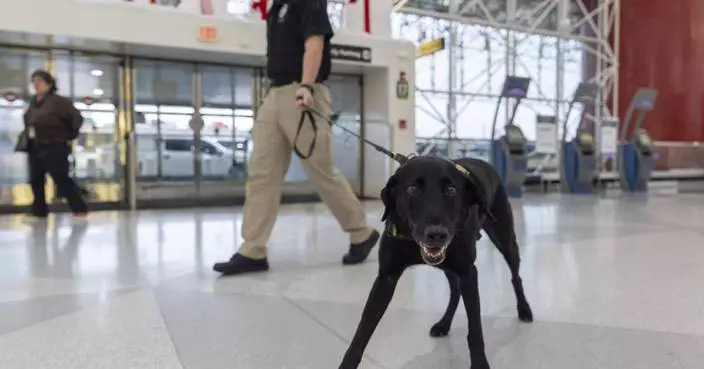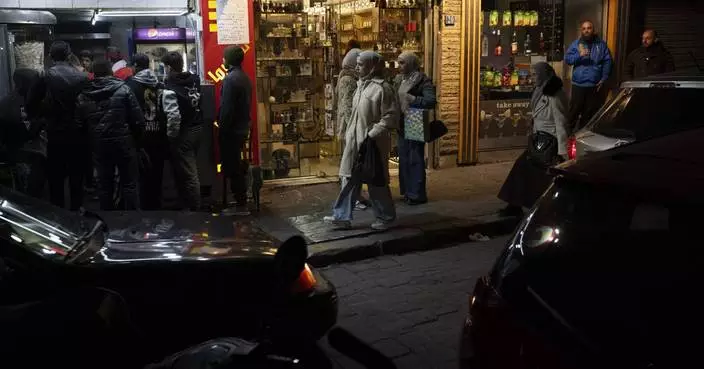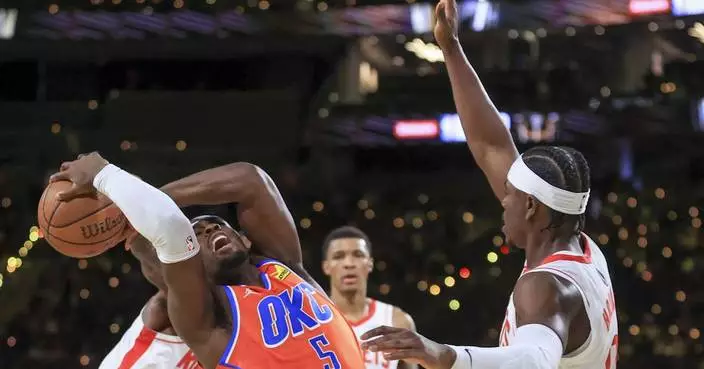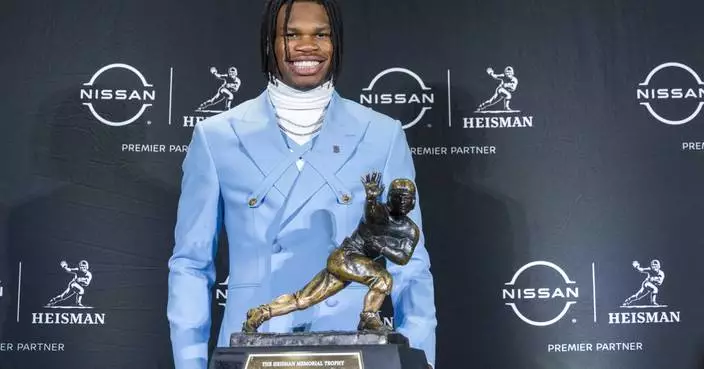Sexual abuse and harassment by coaches and others who held positions of power over women on the U.S. Biathlon team have been dismissed, ignored or excused over decades by officials more concerned with winning medals than holding offenders accountable, according to a half-dozen former Olympians and other biathletes.
And while the men involved climbed the ranks of the sport, these women — who described a culture of abuse dating back to the 1990s — told The Associated Press they were forced to end their racing careers early.
One coach resigned after the young biathlete he was accused of sexually abusing attempted suicide, but he was later hired to coach the U.S. Paralympic team.
Max Cobb, who the women say was informed but failed to address the claims, went from U.S. domestic team manager to CEO of the U.S. Biathlon Association and is now secretary general of the International Biathlon Union, the worldwide governing body of the sport, which combines cross-country skiing on trails with target shooting.
Two male coaches and a former racer on the men's biathlon team confirmed the culture of misogyny described by the women, who all said they faced retaliation for speaking up.
“My safety on the team was clearly secondary to a top-down power structure focused on image, medals and marketing,” said two-time Olympian Joan Wilder, 58, who said her coach got away with trying to sexually assault her in 1990 despite her complaints to Cobb.
Grace Boutot, a 2009 Youth World Championship silver medalist, said her reports to Cobb and other officials about abuse committed by two coaches, beginning when she was 15, also went unheeded, eventually leading to a suicide attempt.
“U.S. Biathlon leadership always seems to choose to support the predators instead of the person who was abused,” the now 33-year-old Boutot said.
The women came forward after the AP reported that Olympian Joanne Reid was sexually abused and harassed for years, according to findings by the U.S. Center for SafeSport, a watchdog group created to investigate sex-abuse allegations in Olympic sports in the aftermath of the Larry Nassar U.S. Gymnastics scandal.
The AP generally does not identify victims of sexual abuse except in cases where they publicly identify themselves or share their stories openly, as these women have.
Reid told the AP her repeated complaints to top U.S. Biathlon officials, which were relayed to Cobb, were ignored for three years.
Cobb denied the women's allegations that he failed to act. “During my 33 years at U.S. Biathlon, athlete safety was always fundamental to me and I can't recall ever hearing from athletes or others that my efforts in this regard were not appropriate,” he said in an email to the AP.
Cobb declined to be interviewed to respond to specific allegations raised by the women, saying it would be a violation of SafeSport's code.
However, an independent investigation ordered by U.S. Biathlon into team culture and safety following the AP report found biathletes faced “misogynistic” behavior while racing and feared retaliation if they came forward with their concerns.
The assessment by outside auditor Vestry Laight, released last week, said the athletes surveyed described a sport "dominated by men who have a very different outlook on how to treat women” and criticized the “lack of attention paid to create a respectful environment.”
Biathlon officials said they were adopting an “action plan” in response to the auditor's report, including workshops with staff and athletes to define core values and create a way to measure progress.
SafeSport interviews also confirmed the sexualized atmosphere. U.S. Biathlon team psychologist Sean McCann described “a European boys club culture” in the watchdog group's 2022 report on the Reid case, with some men sharing sexual comments and other explicit content on a private WhatsApp group.
Biathlon is the only winter sport for which the U.S. has never won an Olympic medal. Desperate to excel in the European-dominated sport, U.S. officials hired European coaches and staff, and turned a blind eye when women raised claims of sexual harassment or abuse on the team, all those interviewed said.
In 1990, to prepare for the first-ever women’s biathlon race at the Olympics, U.S. officials hired German biathlete Walter Pichler, a 1984 Olympic bronze medalist, to coach the U.S. women’s team.
During a training camp in Montana that year, the team went out one night but then 20-year-old Wilder said she went to bed early. She suddenly woke to someone on her back. Pichler was holding her down and trying to force her to have sex, she said in a complaint filed with SafeSport.
Pichler denied trying to sexually assault Wilder. “This is unbelievable,” he told AP. “I’m speechless. If this comes out, it does damage to me.”
“I always had a super relationship with Joanie, or with all the athletes, all the female, the men athletes. All of them.”
Wilder said she chased Pichler from her room and reported it to then-team manager Cobb. He showed concern, she said, “but didn’t consider it discipline-worthy.” Cobb justified Pichler’s behavior by saying he didn’t know U.S. laws or culture, she said.
“I recall pressing Max Cobb about sending Walter back to Germany. The conversation didn’t last long," said Wilder, who competed under her maiden name Guetschow. Pichler's visa had taken two years to secure, he told her, "and we were so close to the Olympics. We needed their expertise to perform well."
“The message I felt, and it hurt, was not to harm the team, organization, Olympics over a very inconvenient ‘incident,’” she said. “Basically, shut up for the team’s sake.”
Wilder said in her SafeSport complaint that she faced retaliation for pressing the issue of firing Pichler. “I was targeted as a ‘problem’ athlete,” she said, in the complaint.
She said her rifle disappeared, her skis went to another athlete, and she was temporarily bumped from the 1994 Olympic team, then dropped from the national team before the 1998 Olympics without being told. That put her health insurance at risk. She had undergone heart surgery, so losing coverage with a pre-existing condition was catastrophic, she said.
She called Cobb in distress.
“Max ended the conversation with, ‘Well, if you write a letter to the U.S. Olympic Committee and say that you’re resigning from biathlon, I’ll extend your medical insurance,’” she told the AP. She hung up, she said, deciding she didn’t have any fight left.
“It was time for me to move on.”
Boutot grew up homeschooled and mostly isolated from others her age in Fort Kent, Maine, a town of 4,000 on the Canadian border. The Maine Winter Sports Center ran a world-class Nordic ski facility there used by U.S. Biathlon.
Boutot was 12 when she was recruited into the program in 2003. She started racing biathlon the next year and began training with newly hired coach Gary Colliander when she was 15.
Colliander gave her a lot of coaching attention, but also a lot of hugs, she said. Her parents had divorced and she rarely saw her father, so she appreciated his support.
“I didn’t think he would do anything to hurt me,” she told the AP of Colliander, who was 15 years her senior.
As she got older, she said, his attention increased. He invited her to his home, massaged her legs and rubbed her back and buttocks, she said. He was married, but his wife lived part time in Colorado.
The conduct escalated after she turned 18 to “kissing, sexual fondling and oral sex,” according to a treatment summary by therapist Jacqueline Pauli-Ritz, shared with the AP.
Boutot said she begged him to stop but Colliander ignored her. She said he warned her against telling anyone, saying his life would be ruined and her biathlon career would end.
She loved racing, and felt trapped; to compete internationally she needed her coach's recommendation: “I didn’t know what to do,” she said.
She became severely depressed and started cutting herself, according to the therapist's notes. In September 2010, Pauli-Ritz contacted Colliander and told him Boutot was suffering from major depression and post-traumatic stress disorder and he should stop coaching her, the treatment summary said.
“He did not do this until after the suicide attempt,” Pauli-Ritz wrote, referring to Boutot's Oct. 7, 2010, overdose on antidepressants while at a training camp in Soldier Hollow, Utah. She was found by a teammate and hospitalized.
The next day, Colliander resigned. He took a coaching job in Colorado and was hired in December 2016 by the U.S. Paralympic team, where he is associate director of high performance for U.S. Paralympics Nordic Skiing.
Colliander did not respond to phone messages and emails seeking comment.
In October 2010, Boutot informed the CEO and the vice president of the Maine Winter Sports Center about the abuse by Colliander, according to a letter she sent to the sports center’s board. But, she said, there was no investigation.
Boutot said she also faced abuse by then-U.S. Biathlon junior team coach Vladimir Cervenka of the Czech Republic, starting in 2007. He caressed her buttocks and legs, she said, and also grabbed other girls and gave “good luck pats.”
When she won a silver medal at the 2009 Youth World Championships in Canada, Cervenka grabbed her, she said.
“He forcibly kissed me and groped my entire body, smothering me and crushing me until he was pulled off of me by our team masseuse,” she said of Cervenka, who was 26 years older than her.
Cervenka denied Boutot's claims.
“I absolutely did not kiss her or grope her body,” he told the AP in an email. “Regarding inappropriate touching Grace, I have no memory of any of that and I for sure did not have any intention of doing that. All these accusations are absurd and very upsetting.”
Boutot reported the alleged abuse by Cervenka twice to U.S. Biathlon officials, including in a Jan. 6, 2011, email to Cobb and a U.S. Biathlon board member in which she also expressed concern about Cervenka's inappropriate contact with other young teammates and her worries about retaliation for speaking up. In the email exchange, she was told the issues were serious, but she had to make her complaint public so Cervenka could defend himself.
Boutot said she expected them to investigate.
“I wish I would have spoken up more at the time but it was terrifying,“ she told the AP. ”I told them of the abuse and they never took me seriously. It felt like an insurmountable battle, me against them. I went to USBA hoping for help, and it felt like they continuously shut me down and wanted me to leave the sport.”
Boutot tried to keep racing but faced retaliation by the Maine Winter Sports Center, she said in a 2011 complaint filed with the Maine Human Rights Commission. She accused the center of failing to prevent Colliander’s sexual misconduct and retaliating against her when she reported it — denying her coaching and ending its financing of equipment, travel, athlete housing and other U.S. Biathlon competition-related expenses.
The center settled for $75,000, and Boutot quit racing.
SafeSport has ordered a new investigation into whether Reid was retaliated against for exposing the abuse she endured to the watchdog group. SafeSport spokeswoman Hilary Nemchik said she could not comment on the ongoing case.
Olympian Deedra Irwin, Reid's teammate who is competing at the World Cup in Europe this winter, said the misogynistic culture described by SafeSport grew under Cobb's leadership.
“Max Cobb just hired all his friends,” Irwin told the AP. “The amount of people working in USBA right now who are all ex-athletes that are all really close with Max Cobb, it's like, OK, this is how this kept happening for so many years."
"You just keep hiring people who are comfortable with what's already happening.”
SafeSport, which was created in 2017, decades after the abuse reported by Wilder and Boutot, investigates claims even when the legal statute of limitations has expired.
After receiving an anonymous tip, SafeSport contacted Boutot in 2021 about filing a complaint about the abuse allegations involving Colliander, she said.
She declined. A coach found guilty might only face a six-month suspension, she said, but “what I have endured has been a life sentence.”
Wilder said she didn’t know she had the option and filed a SafeSport complaint, naming Cobb and Pichler, after she found out. She said it is “an important next step.”
“I love the sport of biathlon,” Wilder said. “I sincerely hope that my shared story with other women biathletes results in this being bookends to a darker period — that it never happens again.”
EDITOR'S NOTE — Martha Bellisle is an amateur biathlete who has won several U.S. national and world championship gold medals in the master’s division for competitors 60 and older. She has competed at local races across the country sanctioned by the U.S. Biathlon Association.
—-
EDITOR’S NOTE — This story includes discussion of suicide. If you or someone you know needs help, the national suicide and crisis lifeline in the U.S. is available by calling or texting 988. There is also an online chat at 988lifeline.org
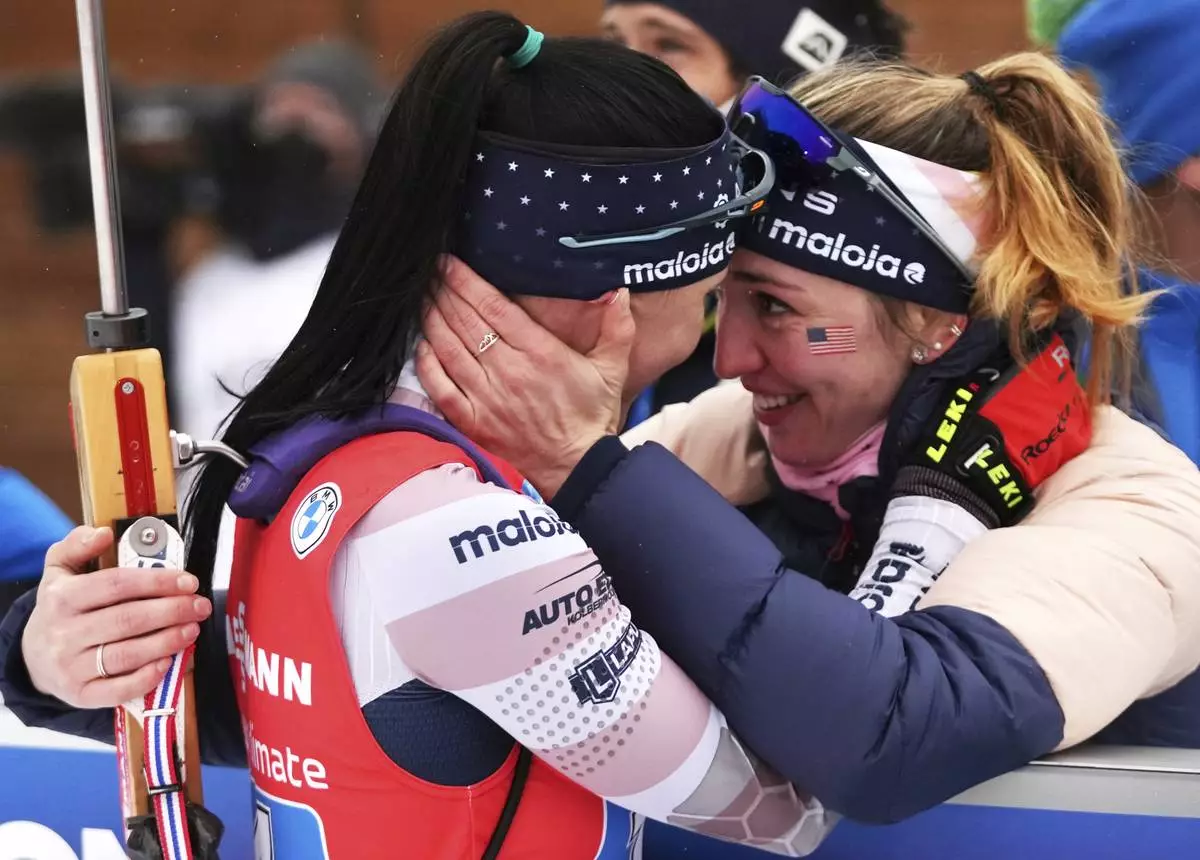
FILE — Joanne Reid, left, of the United States, and compatriot Deedra Irwin embrace at the finish line during the women's 4 x 6 km relay race at the biathlon World Cup in Anterselva, Italy, Jan. 22, 2022. (AP Photo/Matthias Schrader, File)
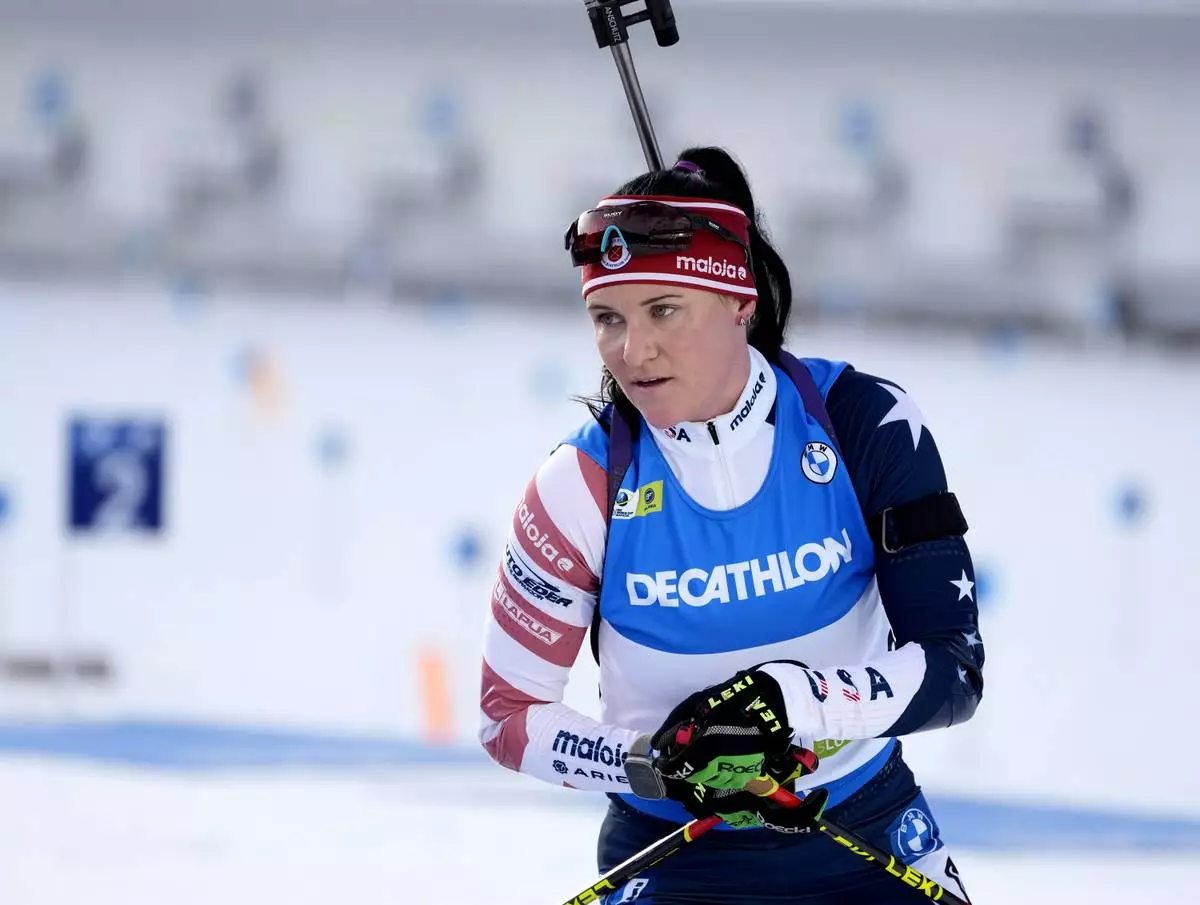
FILE - Joanne Reid, of the United States, competes during the women's 7.5 km sprint competition at the Biathlon World Cup event in Pokljuka, Slovenia, on Jan. 5, 2023. (AP Photo/Darko Bandic, File)
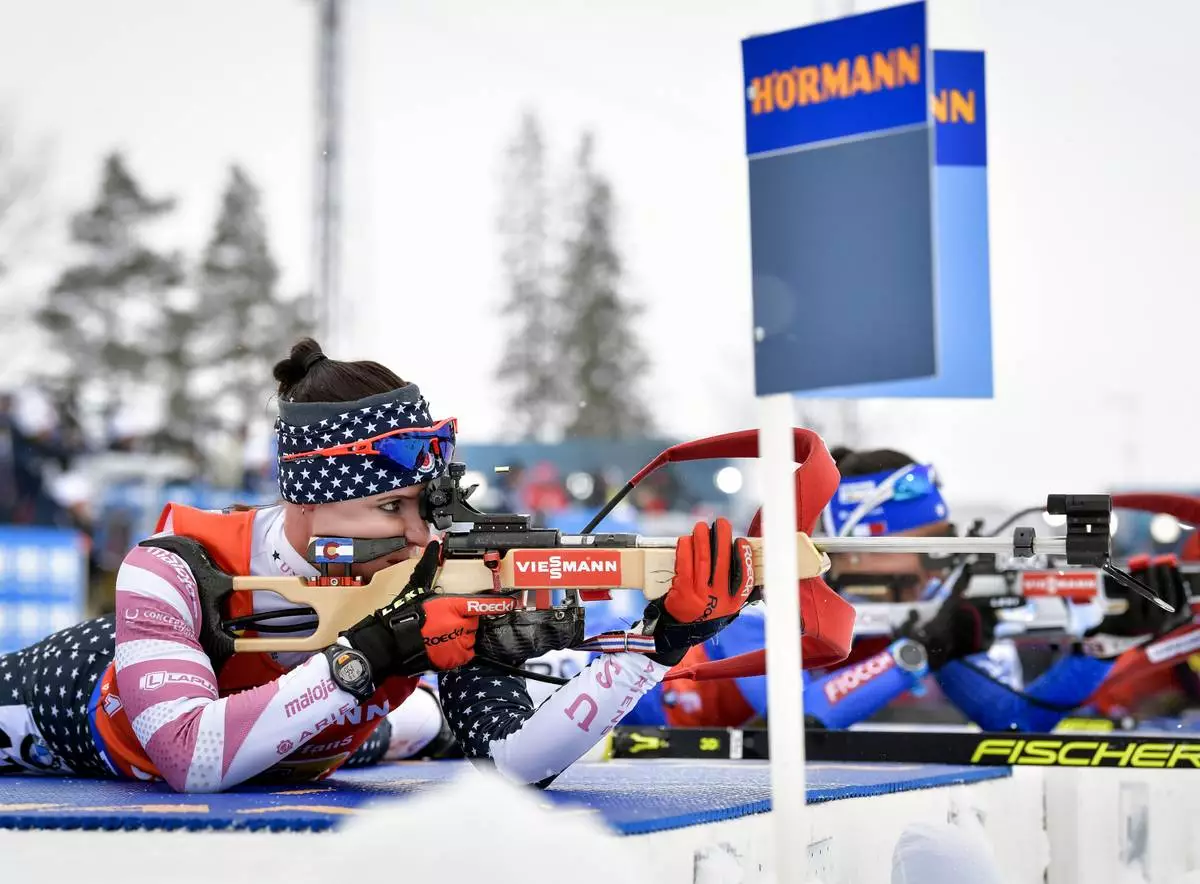
FILE - Joanne Reid, left, of the United States, shoots during the women's 4x6 km relay competition at the IBU World Biathlon Championships, in Ostersund, Sweden, March 16, 2019. (Jessica Gow/TT via AP, File)
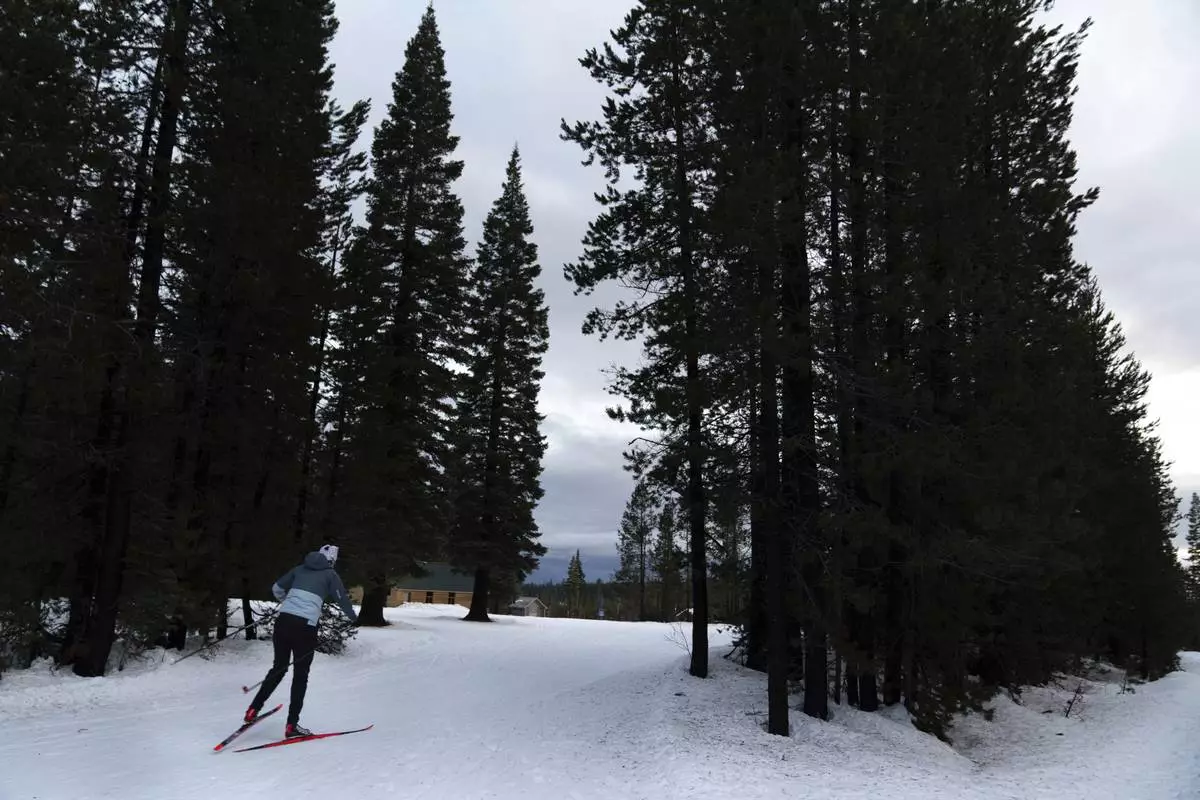
Two-time Olympian Joan Wilder skis at the Meissner Nordic Community Ski Area within the Deschutes National Forest on Nov. 22, 2024, in Deschutes County near Bend, Ore. (AP Photo/Jenny Kane)
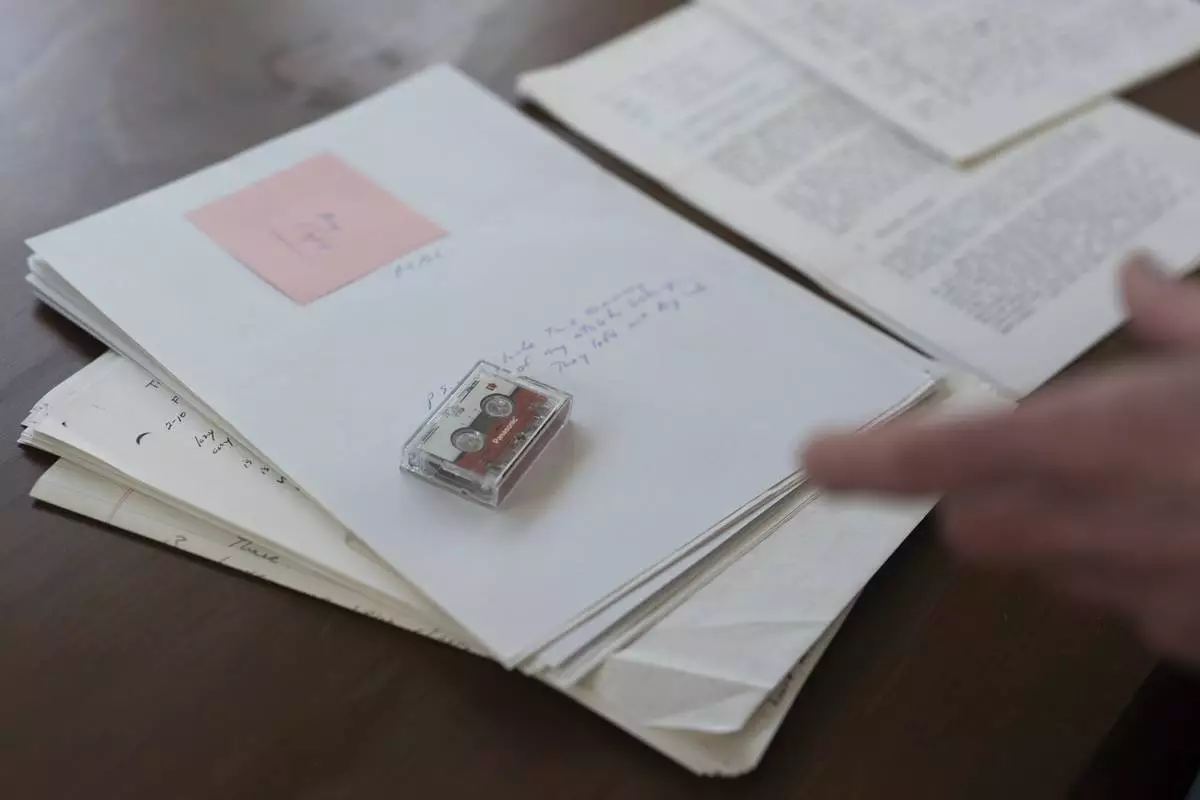
Two-time Olympian Joan Wilder looks through records from her time on the U.S. Biathlon team at her home including a taped conversation on Nov. 22, 2024, in Bend, Ore. (AP Photo/Jenny Kane)
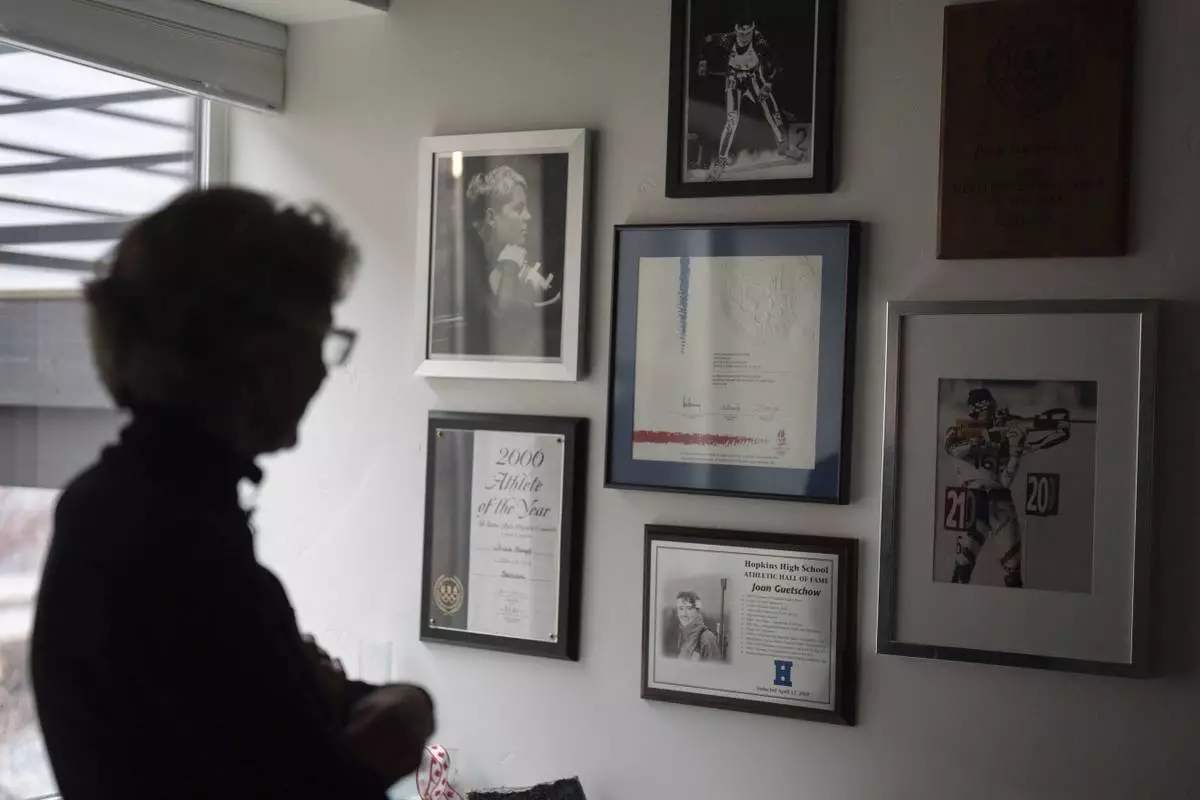
Two-time Olympian Joan Wilder looks at memorabilia at her home on Nov. 22, 2024, in Bend, Ore., including an image of her competing at bottom right. (AP Photo/Jenny Kane)
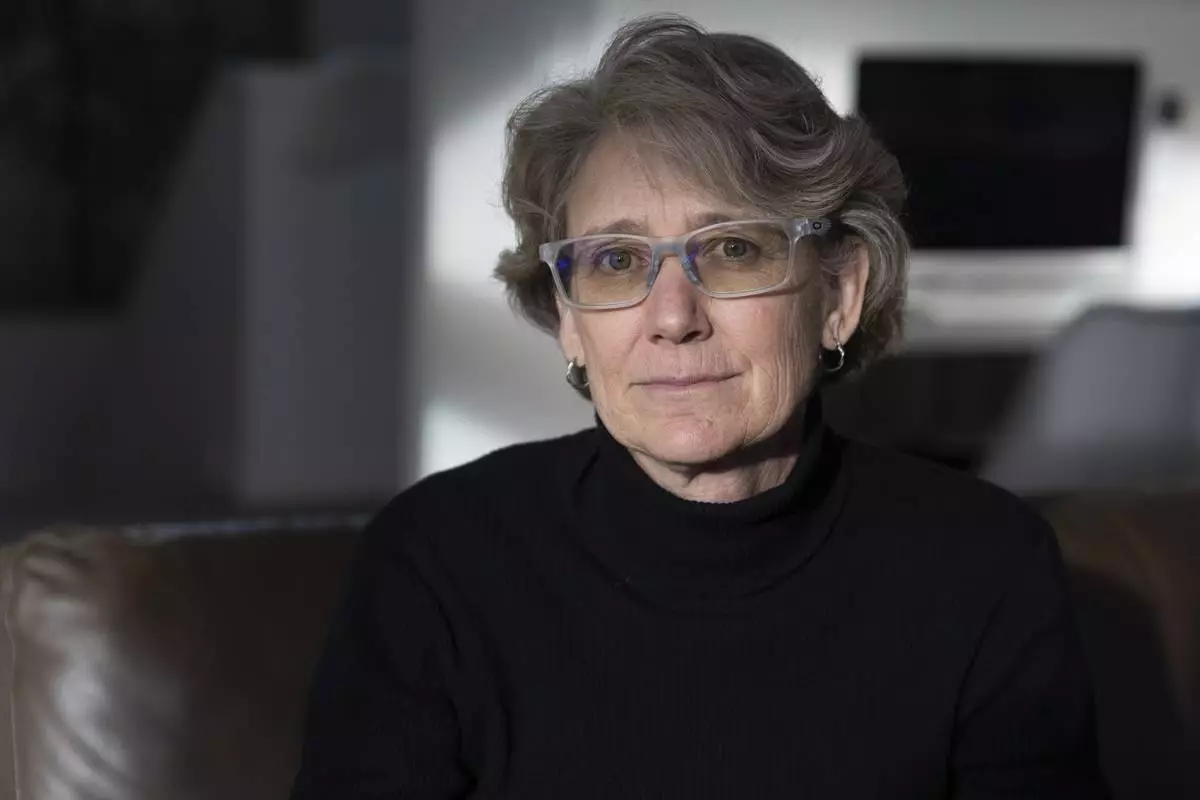
Two-time Olympian Joan Wilder poses for a photo at her home on Nov. 22, 2024, in Bend, Ore. (AP Photo/Jenny Kane)
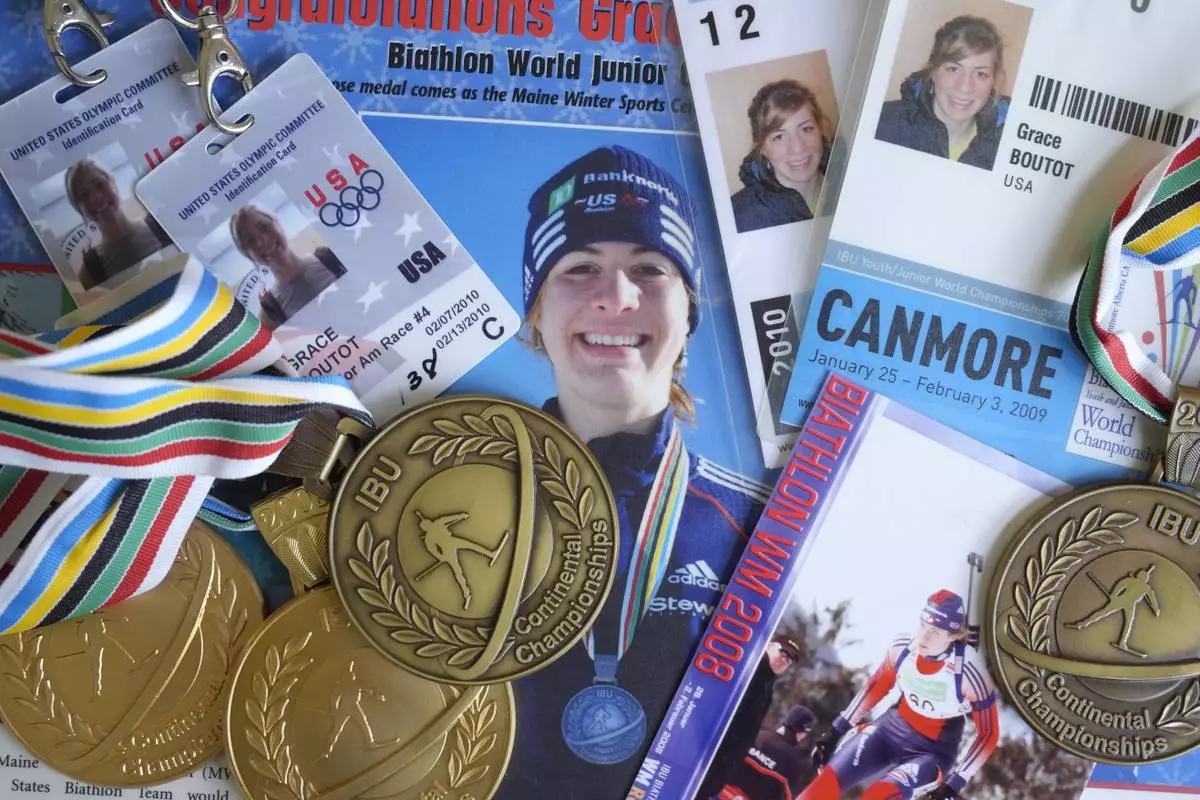
Biathlon competition medals, credentials, and media clippings belonging to Grace Boutot, silver medalist in Youth World Championships in 2009, are displayed for a photograph at her home, Oct. 17, 2024, in Boston. (AP Photo/Steven Senne)
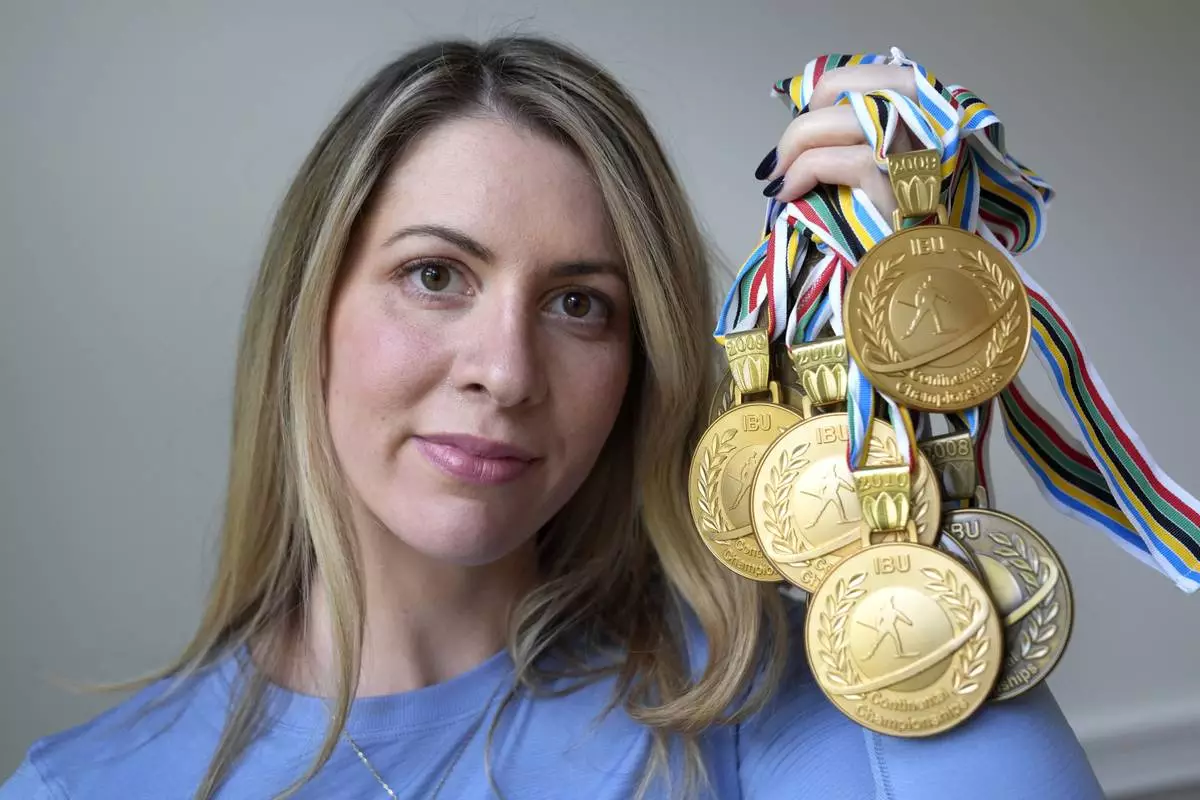
Grace Boutot, who won a silver medal in the Youth World Championships in 2009, displays a few of her medals from competitions, Oct. 17, 2024, at her home in Boston. (AP Photo/Steven Senne)
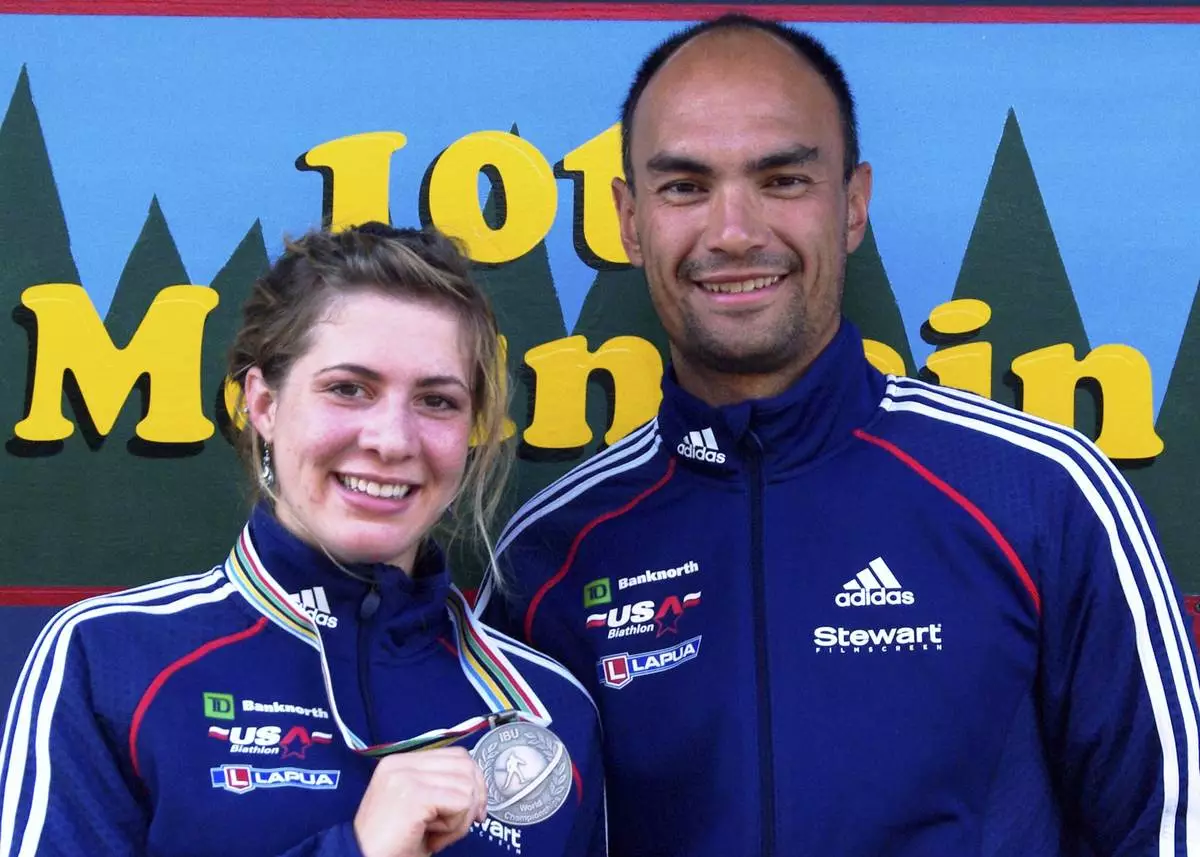
In this 2009 photo provided by Karen Gorman, biathlete Grace Boutot, left, of Fort Kent, Maine, displays her silver medal from the Youth Women Biathlon World Championships, while standing with coach Gary Colliander, right, in Fort Kent. (Karen Gorman via AP)
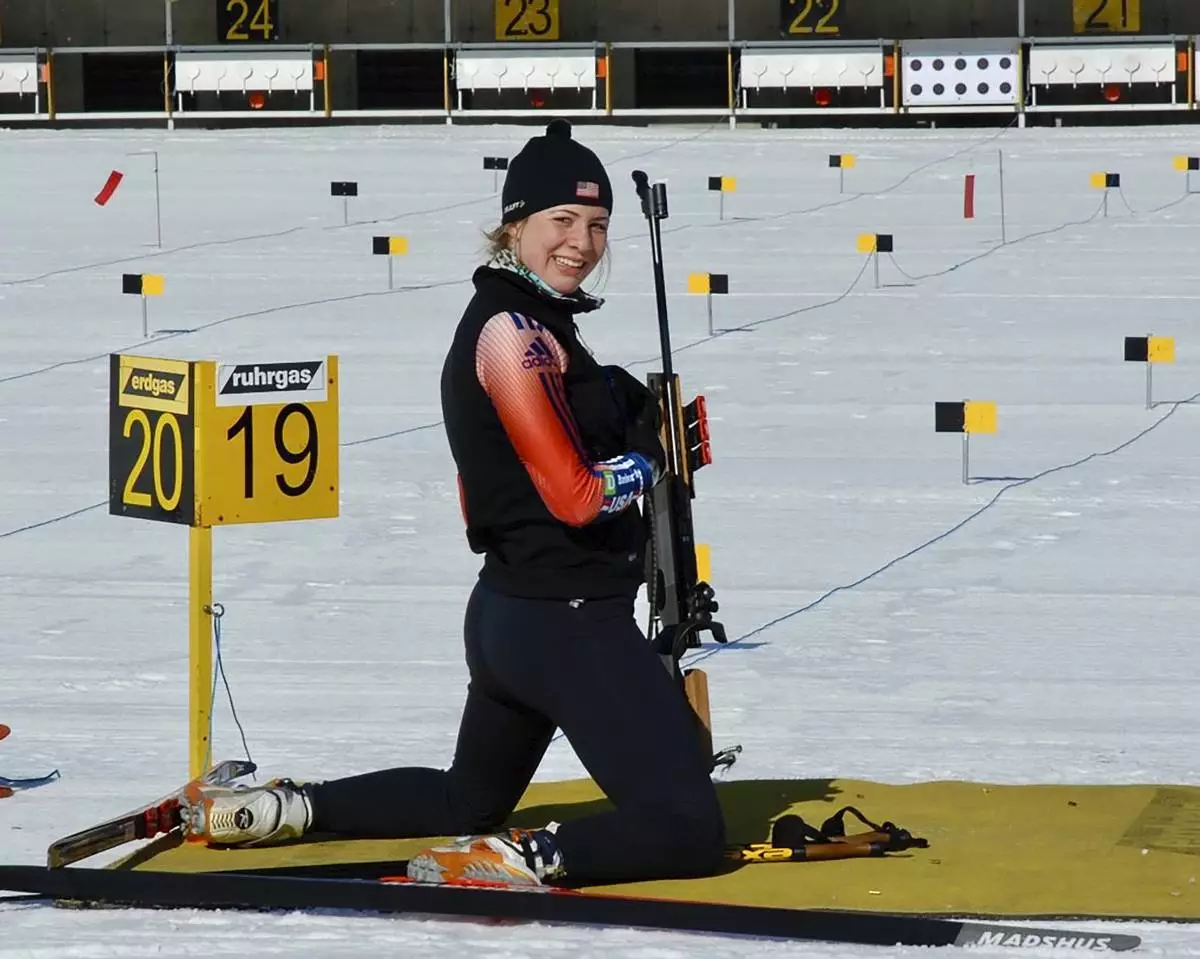
In this 2010 photo provided by Julia Bayly biathlete Grace Boutot practices at the 10th Mountain Ski Center in Fort Kent, Maine. (Julia Bayly via AP)
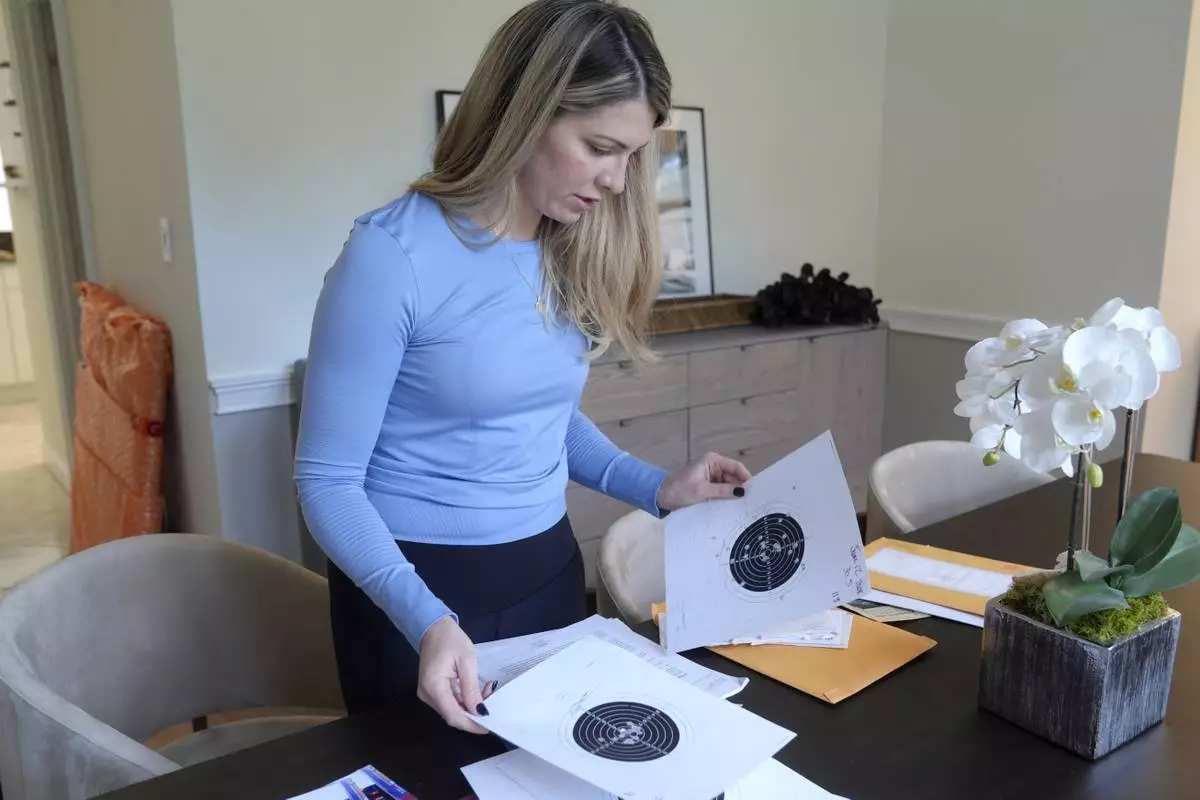
Grace Boutot, who won a silver medal in the Youth World Championships in 2009, displays targets from her time as a biathlon competitor, at her home in Boston, Oct. 17, 2024. (AP Photo/Steven Senne)
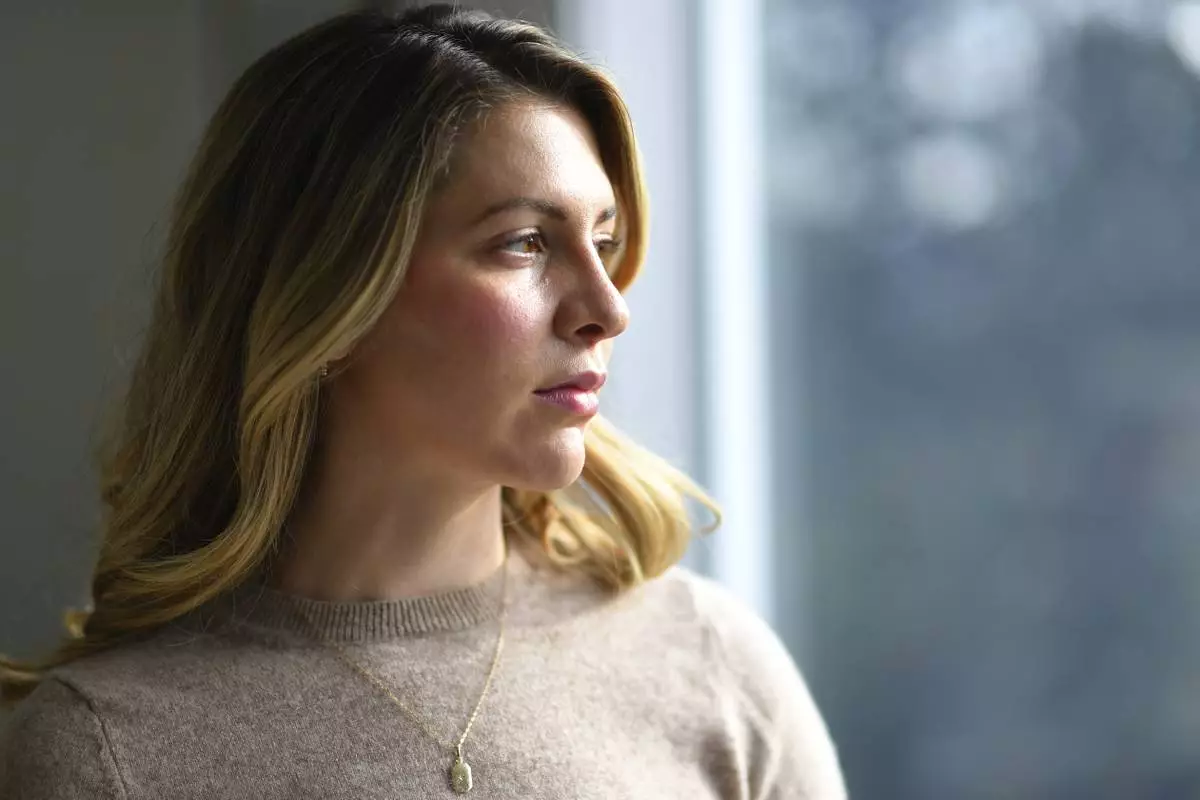
Grace Boutot, who won a silver medal at the 2009 Youth World Championships, stands for a photograph in her home, Sunday, Dec. 8, 2024, in Boston. (AP Photo/Steven Senne)
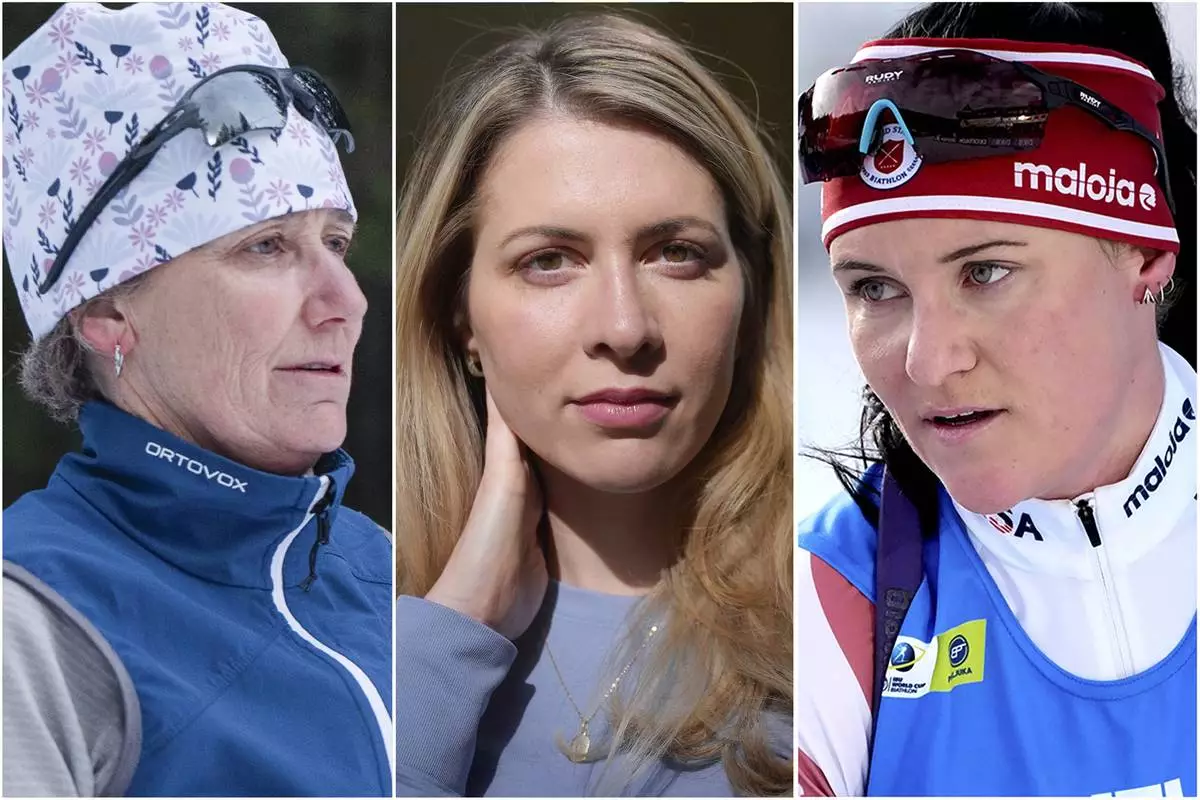
This combination of images shows Joan Wilder on Nov. 22, 2024, Grace Boutot on Oct. 17, 2024, and Joanne Reid on Jan. 5, 2023. (AP Photo/Jenny Kane, Steven Senne, Darko Bandic)


